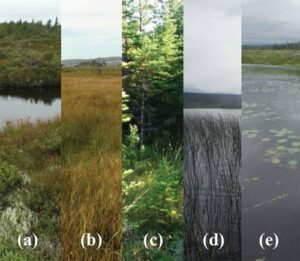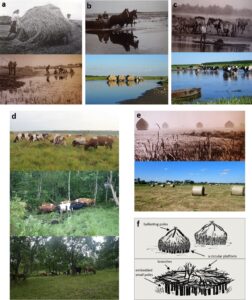Back to: ZOOLOGY 500 Level
Welcome to class!
Good day, my enthusiastic learner! It’s such a joy to have you here, ready to connect what you’ve learned with real-world studies that shape how we care for our environment. Today, we will be looking at Review of Published Fieldwork Projects—particularly those in forest ecology and wetland monitoring. These studies are like stories from the field that teach us lessons and inspire new ideas for protecting Nigeria’s rich ecosystems.
Review Of Published Fieldwork Projects (E.g., Forest Ecology, Wetland Monitoring)
What Are Published Fieldwork Projects?
Published fieldwork projects are detailed reports and research papers where scientists share the results of their investigations conducted in nature. They often include what was studied, how the study was done, what was found, and why it matters.

For example, a researcher might publish a project on how logging affects wildlife in Cross River National Park, or how water pollution impacts fish diversity in the Niger Delta wetlands.
These reports are important because they:
Add to our collective knowledge
Help us learn from successes and mistakes
Guide policymakers and conservationists in making informed decisions
Forest Ecology Fieldwork Examples
One famous type of project studies forests—like the tropical rainforests in Nigeria. Researchers may track tree species diversity, animal populations such as primates, or the effects of human activities like farming and logging.
For instance, a study in Okomu Forest Reserve examined how selective logging influenced bird species diversity. The findings showed that areas with heavy logging had fewer bird species, signalling the need for better forest management.
Wetland Monitoring Fieldwork Examples
Wetlands like the Hadejia-Nguru wetlands in Northern Nigeria are critical for fish, birds, and water purification. Researchers monitoring wetlands often measure water quality, species presence, and how seasonal flooding affects the ecosystem.
A project might monitor migratory birds, noting changes in their numbers and behaviour as water levels fluctuate. These observations help communities understand how to protect wetlands during dry seasons or when threatened by agriculture expansion.
Why Reviewing These Projects Matters for You
You gain insights into practical challenges and solutions in real environments
You learn how to design your own fieldwork and avoid common pitfalls
You appreciate the variety of methods used in ecological research
You connect theory with practice, building a strong foundation for your career
How to Review Published Projects Effectively
Focus on objectives: What questions were the researchers trying to answer?
Look at methods: How did they collect and analyse data?
Understand results: What did they discover?
Reflect on implications: How does the study help in conservation or policy?

Think critically: What could have been done differently?
Summary
- Published fieldwork projects document detailed ecological studies conducted in natural habitats.
- Forest ecology projects often focus on species diversity and human impacts.
- Wetland monitoring tracks water quality, species, and seasonal changes.
- Reviewing these projects helps you learn practical skills, connect theory with real-life, and contribute to better environmental management.
Evaluation
- Why are published fieldwork projects important in ecology?
- Give one example of a fieldwork project related to forest ecology in Nigeria.
- What kind of information do wetland monitoring projects provide?
- How can reviewing published projects help you as a student and future ecologist?
You are now walking alongside experienced scientists, learning from their discoveries and wisdom. Keep your curiosity alive, your mind open, and your heart passionate for nature. Afrilearn believes in your potential to make a real difference—one fieldwork project at a time!
